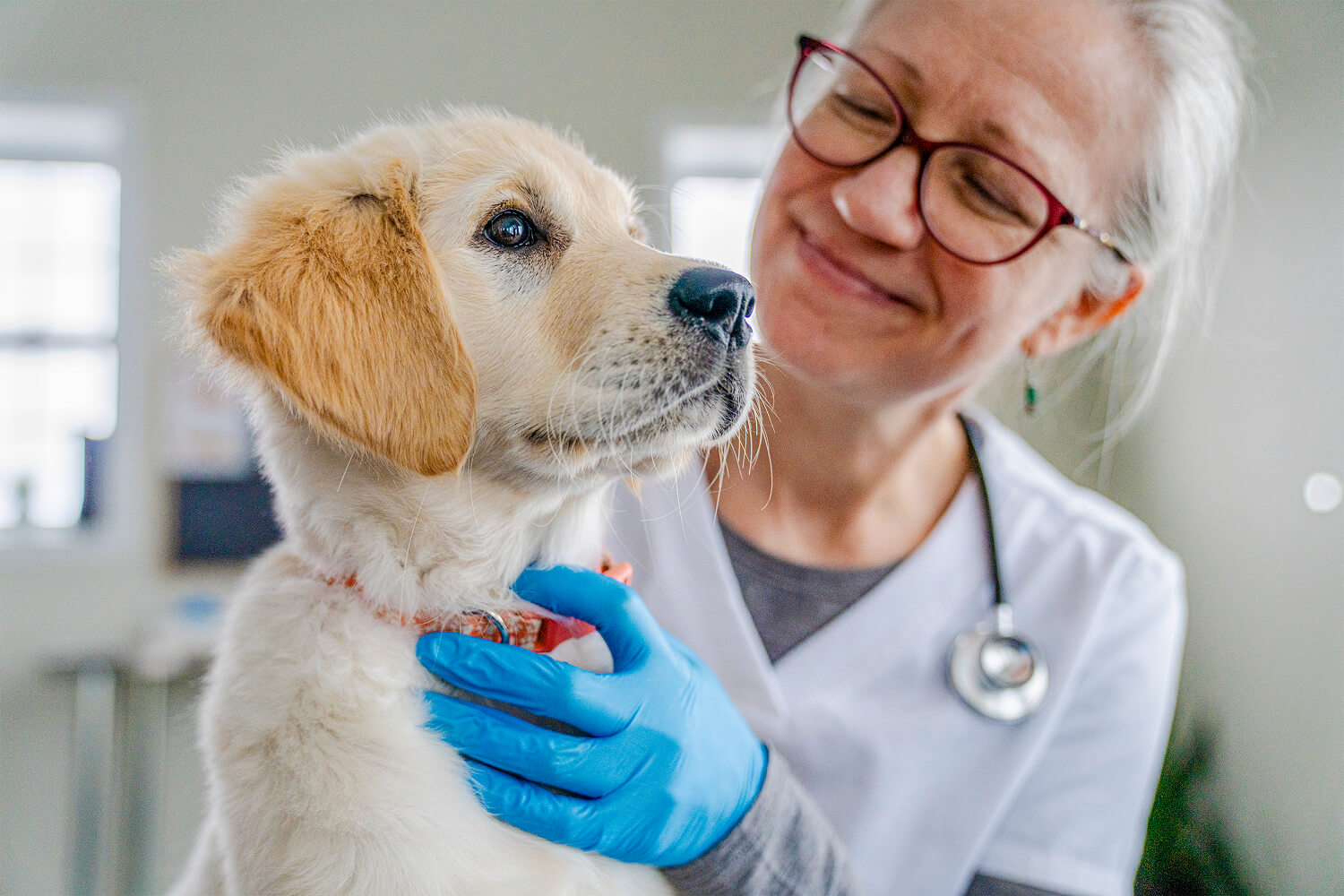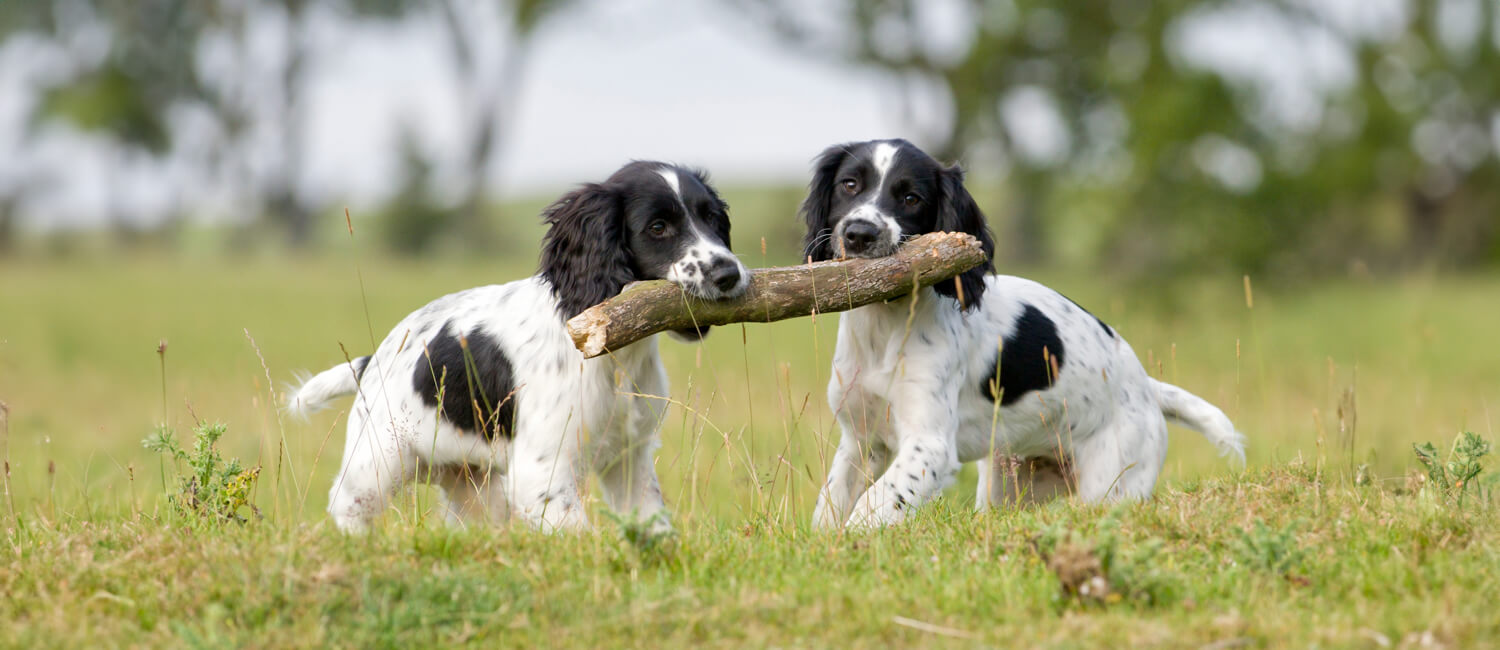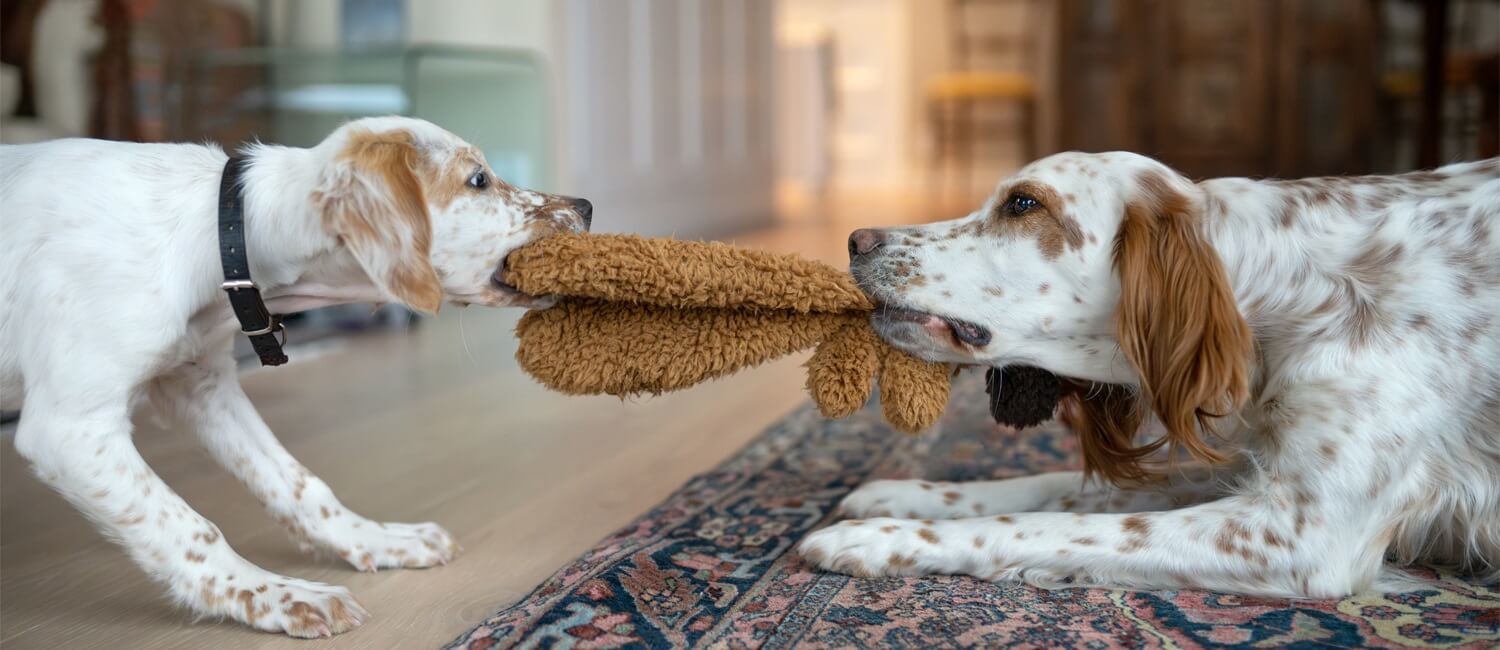

Bringing home a new puppy is an exciting moment for everyone.
Make sure to have your new puppy start their new adventure on the right paw with preventive wellness care. Follow our guide for comprehensive wellness tips to support your new pup starting day 1.
Why Is It Important To Vaccinate?
Disease Prevention:
- Vaccinations protect against common and potentially deadly diseases. Follow the
recommended vaccination schedule provided by your veterinarian.
Core Vaccines:
- Distemper
- Parvovirus
- Hepatitis
- Rabies
Booster Shots:
- Ensure timely booster shots to maintain immunity. Regular veterinary check-ups help assess
the need for additional vaccinations.
Public Health:
- Vaccinating your puppy contributes to community immunity, safeguarding both animal and
human populations.
Puppy Visits
 |
at 8 Weeks Old |
 |
at 12 Weeks Old |
 |
at 16 Weeks Old |

Puppy Health Essentials
Nutrition:
- Choose high-quality, age-appropriate food to meet their nutritional needs and maintain a regular feeding schedule.
Veterinary Care:
- Visit your veterinarian shortly after bringing your new puppy home to discuss vaccinations, deworming, and any specific health concerns you may have.
Exercise and Mental Stimulation:
- Promote their physical health with plenty of playtime and exercise using toys to engage in activities that stimulate both their mind and body.
Grooming:
- Introduce gentle grooming routines, such as brushing and trimming, early on to help maintain a clean and healthy coat.
Socialization:
- Expose your puppy to various environments, people, and other animals to promote socialization to contribute to a well-adjusted dog.

New Puppy Checklist
Essential Supplies
- Food and water bowls
- Collar, leash, and ID tag/microchip
- Comfortable bed
- Safe and engaging toys
Nutrition
- Choose a high-quality puppy food
- Establish a feeding schedule
Training
- Begin basic obedience training
- Use positive reinforcement techniques
Veterinary Care
- Schedule a first vet visit
- Discuss vaccinations, deworming, and spaying or neutering options
Grooming
- Brush, nail clippers, and grooming tools
- Shampoo and conditioner suitable for their coat type
Safe Environment
- Puppy-proof your home
- Provide a designated space for rest and relaxation.
Conclusion
By prioritizing their health with vaccinations and following a comprehensive checklist, you set the foundation for a happy and fulfilling life for your new puppy. Enjoy the journey of building a strong bond and creating lasting memories with your new companions!




